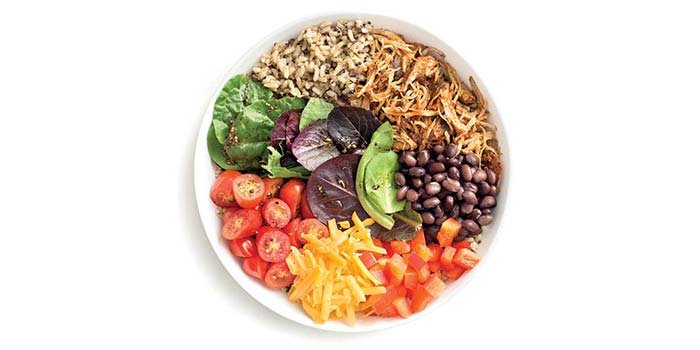MOOD FOOD: What to eat to boost your mood
Mental health is on all our minds and after the pandemic there’s been an increase in overall feelings of sadness, moodiness and just not feeling quite ourselves.
Here’s the good news, while eating a diet that includes foods that lift your mood may not help with all the sources of our stress, good mood food can help you feel better right now… like chocolate which is definitely something to smile about!
The best things to eat that improve mood are:
Limit processed foods. Eating processed foods increases the likelihood of being moody by 50%. Processed foods are those in packages, designed to be highly tasty and addictive, and cause weight gain. Eating a diet with lots of fruit, vegetables, whole grains, fish, olive oil, and low-fat dairy products like Greek yogurt improves mood and a feeling of well-being and makes you feel less depressed.
Include omega-3s in your diet.
Omega-3 fats come from fish and seafood, as well as certain plants like soy, walnuts and seeds like flax. Consuming such foods has been shown to improve mood by 20%. Omega-3s also reduce inflammation, which is associated with anxiety, stress, and sadness. The good news is that you don’t need to consume these foods every day; just a couple of times each week should be enough (we suggest you limit tuna and mackerel due to higher mercury amounts).
Try our recipes packed with omega-3s:
Eat food with probiotics.
Probiotics are healthy baceria that reside in your intestine. They reduce stress, anxiety, and bloating while improving cognition. Probiotics also counter-act the bad bacteria that live in our gut. Probiotics make you happier and smarter; what’s not to like? Yogurt is a great source of probiotics. So are Kefir, tofu, miso, tempeh, Sauerkraut, kimchi, kombucha, and apple cider vinegar.
Try our recipes with probiotics:
Get Your Fiber
Dietary fiber is found in fruits, vegetables, beans and whole grains. Most people don’t get enough so just about everyone needs to consume more. You can lower your chances of feeling sad by 25% by just increasing your fiber intake. Each day, you need to consume at least 25 grams of dietary fiber. The more the better.
Eat Your Berries
There is evidence that eating berries improves mood. And a little is a lot – eating just one ounce daily will do the trick. Mood likely improves due to the naturally-occurring substances, flavonoids, found in berries. Blackcurrants increase energy and alertness. So, when you are thinking of what fruits to eat, always consider berries.
Spice it up!
Spices like curcumin (turmeric), black pepper, fenugreek and saffron have been shown to improve mood, increase energy, and reduce stress. Anti-inflammatory rosemary is known to boost memory, alertness, intelligence, and focus. Add herbs and spices to your cooking and begin to feel the benefits.
Try our recipes with herbs and spices:
Wild Rice with Cranberry and Orange
Rosemary Garlic Steamer Potatoes
Chocolate
A little bit of chocolate consumption improves mood and gets rid of negative thoughts. Chocolate also serves as a prebiotic (a food for the probiotics), which explains why it makes you feel good. Enjoy in moderation.
REFERENCES CONSULTED
Cocoa Dark Chocolate https://fullscript.com/blog/cocoa-to-improve-mood
Cocoa dark chocolate. https://pubmed.ncbi.nlm.nih.gov/34530112/
Cocoa and chocolate pyramid. https://pubmed.ncbi.nlm.nih.gov/29539647/
Saffron https://pubmed.ncbi.nlm.nih.gov/28735826/
Probiotics https://pubmed.ncbi.nlm.nih.gov/25862297/. https://pubmed.ncbi.nlm.nih.gov/32300799/
Omega-3. https://pubmed.ncbi.nlm.nih.gov/21784145/
Cucurmin (turmeric) https://pubmed.ncbi.nlm.nih.gov/32512782/
Ultra-Processed Food Consumption https://pubmed.ncbi.nlm.nih.gov/35807749/
Fibre https://www.ncbi.nlm.nih.gov/pmc/articles/PMC8264187/
Fibre and depression and anxiety. https://pubmed.ncbi.nlm.nih.gov/34248690/
Blueberries https://doi.org/10.3390/nu9020158
Blackcurrants https://pubmed.ncbi.nlm.nih.gov/29343201/
Rosemary. https://pubmed.ncbi.nlm.nih.gov/30651162/
Fenugreek. https://pubmed.ncbi.nlm.nih.gov/30651162/
Black pepper
https://pubmed.ncbi.nlm.nih.gov/30651162/
Fiber and depression. https://doi.org/10.1016/j.ctim.2020.102621
COVID increases anxiety https://www.who.int/news/item/02-03-2022-covid-19-pandemic-triggers-25-increase-in-prevalence-of-anxiety-and-depression-worldwide







